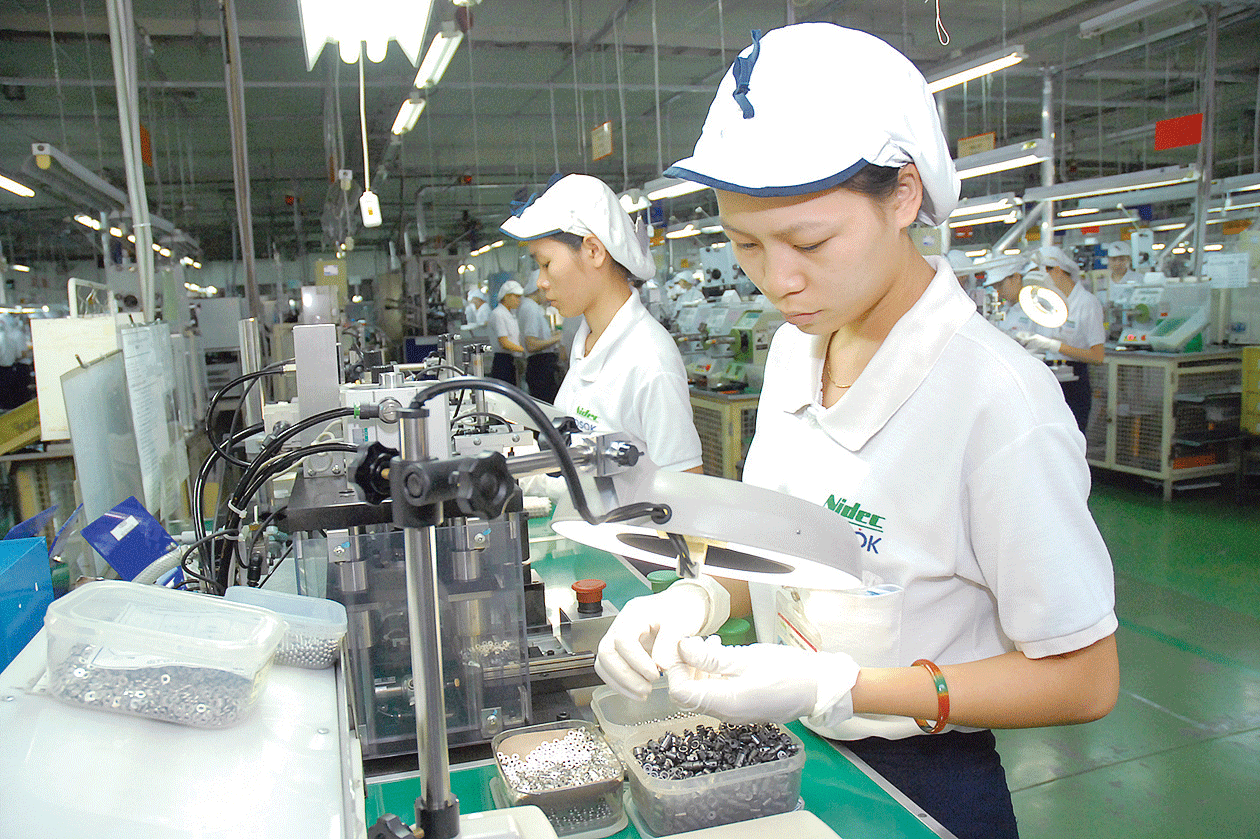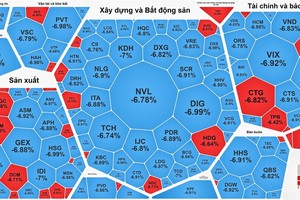
A strong wave of investment shifting of Japanese enterprises has started to head to Vietnam. According to the Japan External Trade Organization (Jetro) in Ho Chi Minh City, right after the supply chains of many Japanese enterprises were broken in the first quarter of this year due to the Covid-19 pandemic, the Japanese Government has urgently promulgated support policy for Japanese enterprises to move their factories out of China, at the same time, diversify the supply chains from many countries. The Japanese Government also set aside up to US$2.2 billion to help Japanese enterprises to relocate. Vietnam is the destination prioritized by Japanese enterprises.
Also according to the Jetro, recently the Japanese Government has announced a list of 30 Japanese enterprises that will relocate their investments to Vietnam. Most of them are large-scale corporations and enterprises operating in the field of manufacturing, processing, and medical equipment. These enterprises are also considered as important links in the global supply chain of the industrial industry of Japan.
In the field of renewable energy production, pharmaceuticals, and cosmetics, European enterprises are also increasing their presence in Vietnam. As for Korean and Thai enterprises, the advantages of diversified raw materials from Vietnam agriculture are strongly attracting businesses operating in the field of food and foodstuff processing. The representative of the Korea Trade-Investment Promotion Agency (Kotra) said that in 2019, thousands of Korean enterprises came to Vietnam to learn about the investment environment. Many of them have shared the same opinion that Vietnam has a rich source of raw materials for the food processing industry. Especially, from here it is possible to take advantage of bilateral and multilateral trade agreements to export to the world.
Moreover, the food processing industry of Vietnam has always encountered difficulties due to the dependence on the source of refined materials from neighboring countries. Vietnam has to import up to 60 percent of refined materials for food processing. This is also a potential market that Korean enterprises are aiming at. A survey on Korean enterprises operating in Vietnam showed that 93 percent of enterprises expressed satisfaction when investing in Vietnam. Therefore, when there are more advantages from the EVFTA, Vietnam will be an attractive and safe destination for many Korean enterprises in the coming time.
According to the General Statistics Office, although the Covid-19 pandemic is developing complicatedly, foreign direct investment (FDI) attraction of Vietnam remains fairly positive. From the beginning of the year until now, the total foreign investment in Vietnam, including newly registered capital, additional investment capital, capital contribution, and purchase of shares of foreign investors, reached nearly $15.7 billion.
Le Nguyen Duy Oanh, Deputy Director of the Ho Chi Minh City Center of Supporting Industries Development, said the wave of foreign investment in Vietnam was increasingly clear. Authorities and provinces need to consider supporting domestic enterprises to absorb this wave of foreign investment in a way in which FDI enterprises will further strengthen domestic enterprises in the supply chain, thereby exploiting opportunities from the EVFTA and other FTAs, instead of competing and putting more pressure on domestic enterprises. Ho Chi Minh City has implemented many solutions to support capital for domestic enterprises to renovate technology, expand production, and meet large-scale orders. The departments also connect qualified domestic enterprises with FDI corporations investing in Vietnam in the supply chain, helping domestic enterprises to improve management capacity, increase product quality, and create opportunities for domestic enterprises to participate more deeply in the global supply chain. To a greater extent, the Government has required provinces to realize investment incentive policies related to tax, land rental costs, and prioritized investment fields, in combination with establishing specialized industrial parks to be ready to welcome foreign enterprises.
Obviously, the success of Vietnam in controlling the Covid-19 pandemic and appropriate policies to achieve the dual goal of pandemic control and economic recovery are drawing the attention of the international community. On the other hand, the upcoming EVFTA will open many opportunities to attract FDI inflows.
“The remaining matter is to create favorable conditions for foreign investors, the Government of Vietnam needs to continue to reform administrative procedures, drastically cut down specialized inspection procedures that are not in line with international practice, maintain consistency and transparency in the preferential policies to attract investment in each province. In addition, it is necessary to apply trade remedies and carry out inspections to ensure a fair and healthy business environment. Especially, it is necessary to handle strongly trade in counterfeit and fake goods. Customs should carry out strict inspection measures on tax avoidance and tax evasion in production, trade, and import-export activities,” Mr. Nicolas Audier, President of the European Chamber of Commerce in Vietnam, recommended.
























